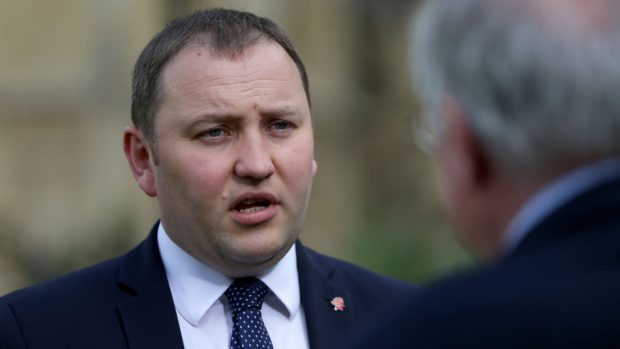Former shadow Scottish secretary Ian Murray has argued powers over agriculture and fisheries should be repatriated directly to Holyrood when the UK leaves the European Union.
Labour’s only MP in Scotland described this as a “natural progression” because on a domestic level they are areas within the remit of the Scottish Parliament.
His comments at the party conference in Liverpool echo an earlier intervention by Gordon Brown, who said the case for giving Holyrood more powers by this means should be examined.
The former prime minister also estimated that if taken forward the Scottish Parliament would need a new funding settlement “over and above” the Barnett Formula.
He suggested this could amount to £750million each year.
Mr Murray said yesterday: “We are now in a situation whereby the discussions have to start about the repatriation of powers – where does agriculture sit, fisheries, economic development, the environment, the European social chapter?
“That is all going to come back from the EU. Where does it go and what do we do with it?”
Asked if his vision was for direct repatriation of powers rather than taking them back to Westminster first, Mr Murray said Scottish Labour should “champion” that.
He added: “We don’t know what repatriation will look like … but say agriculture, fisheries, regional policy and the environment comes back, then the natural progression is they should lie at the Scottish Parliament because they are actually Scottish parliamentary responsibilities already.
“There should be an argument, the Scottish Labour party should be making the argument that these powers should lie in the Scottish Parliament because that is where these responsibilities lie.”
Mr Murray also called on the UK Labour leadership to realise that talk of a “progressive alliance” was not beneficial to the party’s fortunes.
He said: “We have got to be incredibly strong in ruling all these progressive alliances out earlier.
“It’s not in the Labour Party or any political party’s interest to concede doing a deal with other people before an election has even started.
“You are not asking me the question will we do an alliance with the Conservative party – why? Because we fundamentally disagree with them; actually it’s the same with the SNP, we fundamentally disagree with them, why would we do a deal with them?”
Over the weekend, the Edinburgh South MP, who resigned from the shadow cabinet in the summer, accused Jeremy Corbyn of being “all over the place” on future relations with the SNP.
